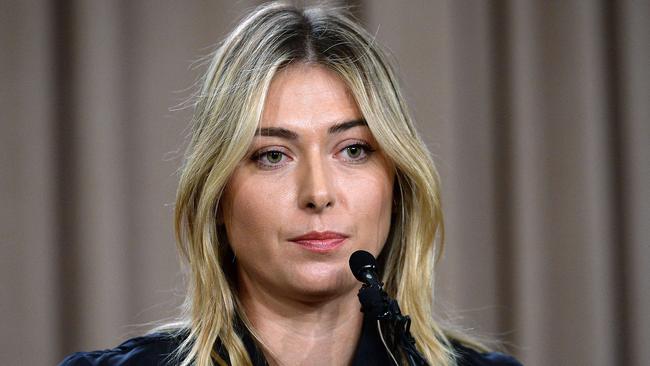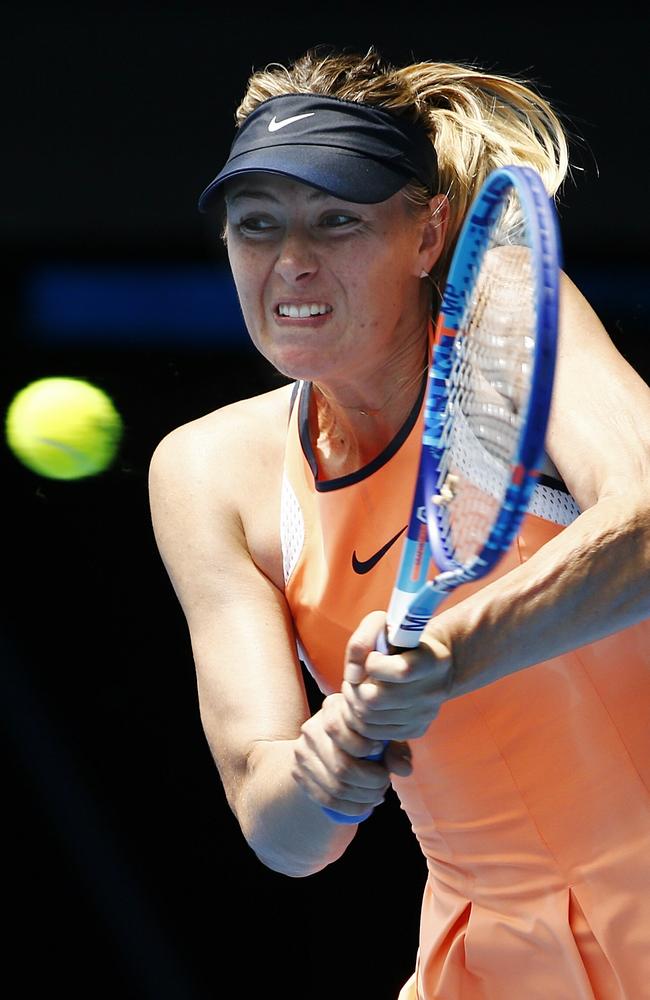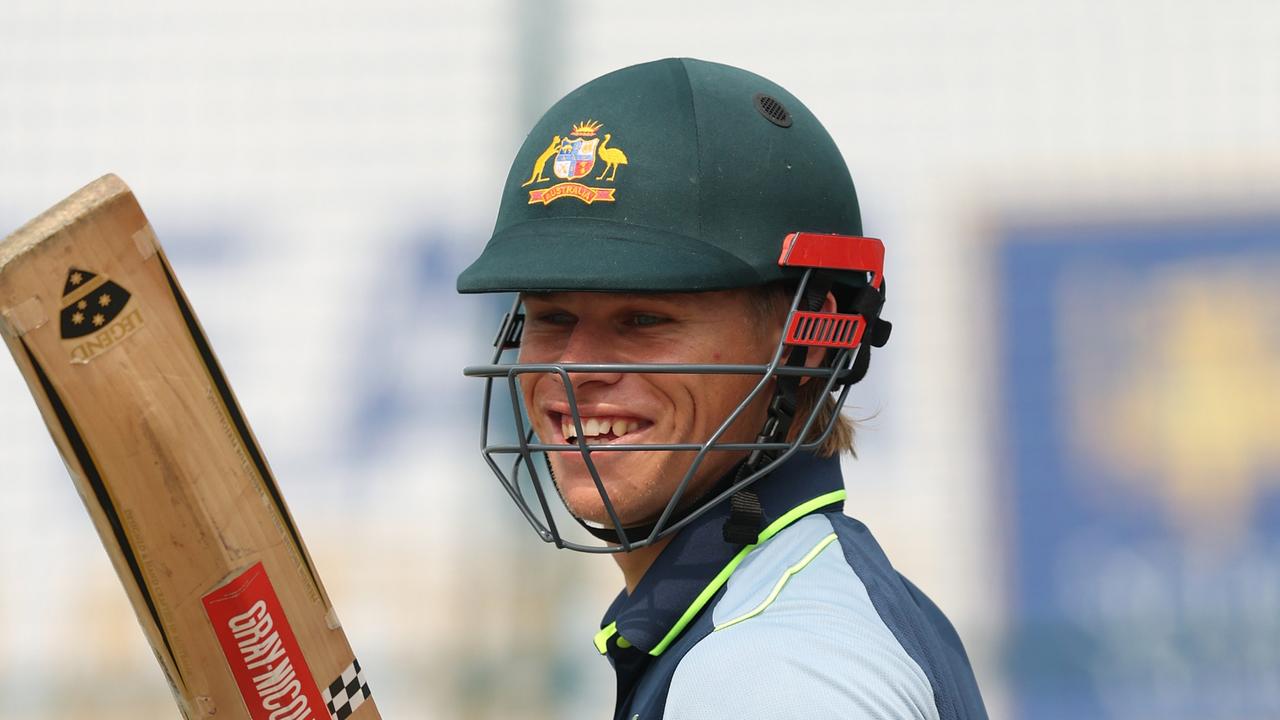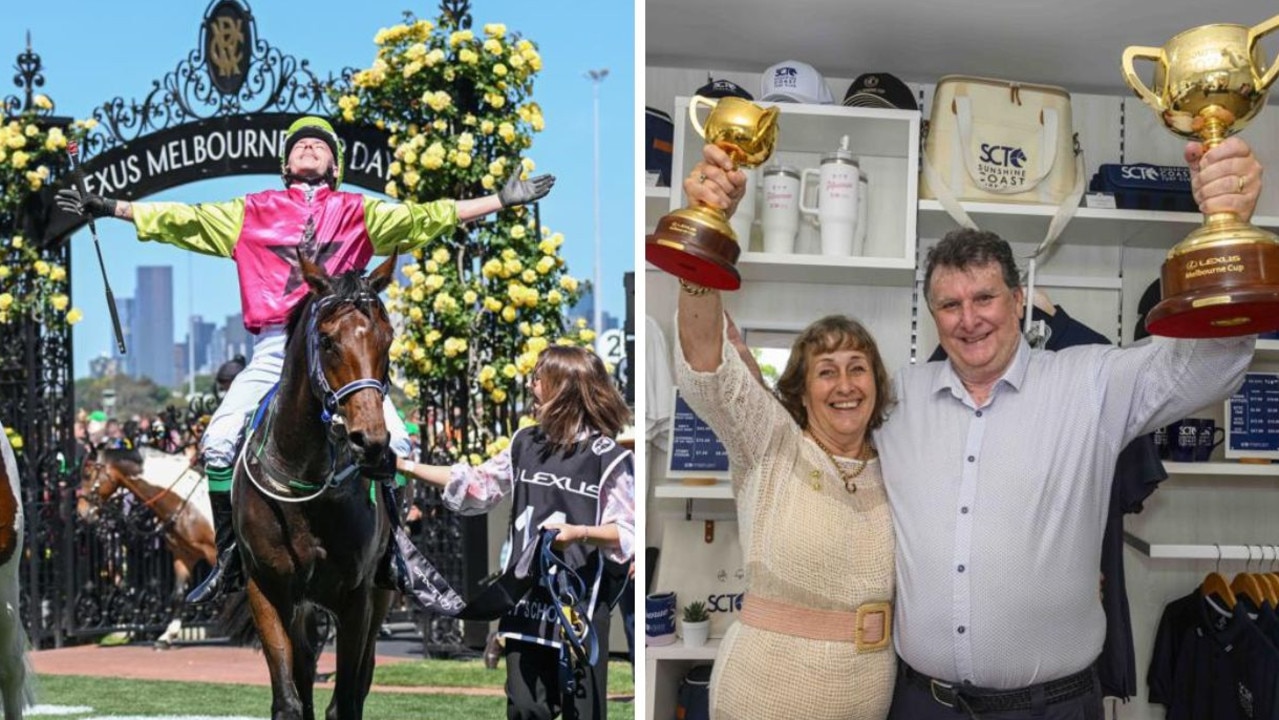Maria Sharapova faces monster pay cut if banned for positive dope test
TENNIS darling Maria Sharapova faces a massive cut to her $US150 million projected five-year earnings if she is banned for a doping positive. And what would it mean for women’s tennis?
Sport
Don't miss out on the headlines from Sport. Followed categories will be added to My News.
MARIA Sharapova’s lawyers are plainly planning a “no fault’’ defence of her doping positive which she desperately hopes will protect her projected earnings of more than $US150 million over the next five years.
The case of Sharapova, who has topped a list of the world’s best paid women athletes for the past 11 years, will go to a tennis anti-doping committee hearing.
The five-time Grand Slam champion returned a positive test to meldonium, a prohibited substance under the World Anti-Doping Agency Code and she serves an immediate suspension until her hearing is heard.
‘FULL RESPONSIBILITY’: Is this the end for Sharapova?
LEO SCHLINK: Sharapova brand takes major hit
ROB SUTHERLAND: Excuse treats fans as dopes
The Tennis Anti-Doping Program said Sharapova has formally “accepted the finding of meldonium in her sample’’ which collected on January 26 at the Australian Open.
“The word meldonium meant nothing to Maria (before the March 2 notification of her positive test),” her lawyer John Haggerty told The Wall Street Journal.

A suspension of up to four years is provided for in the TAPD rules, which bans can be varied such as a first–time offence or “no significant fault or negligence”.
WADA President Craig Reedie said athletes testing positive for meldonium usually face a one-year suspension.
But former Australian Anti-Drugs Agency CEO Richard Ings said as the substance had been illegal for less than three months it was hard to justify Reedie’s “foolish’’ comment.
“These matters are yet to hit a tribunal anywhere,’’ Ings tweeted,
These are high stakes at play for Sharapova, women’s tennis and millions of tennis lovers who have already had their faith shaken by this year’s allegations about systematic match fixing by players and betting syndicates.
American business magazine Forbes last August named Sharapova No.1 among sportswomen in its annual list of athlete earnings for an 11th straight year, with endorsements and prizemoney totalling $US29.7 million to the year ending June 2015.
Should the 28-year-old be suspended, it would remain to be seen how solidly her sponsors stand by her in what is clearly a different set of circumstances to those which saw sponsors desert cyclist Lance Armstrong following his life ban.
Notably, Sharapova sought at her press conference to take personal responsibility, in sharp contrast to the defence run in Australia by and on behalf of the Essendon AFL players during the peptides controversy.

She and her advisers will as a result expect favourable treatment, or at least understanding, as the subject of a penalty is debated.
Under WADA rules, athletes have for many years been responsible for what appears in their test samples.
Sharapova has a large team of coaches and sports medicine experts and her explanation that she did not know meldonium had been added to the WADA banned list astonished and perplexed tennis observers.
While her shrieking in matches drove many up the wall, she was noticeably popular with young girls at tournament sites as well as adolescent boys.
It’s those girls, not overburdened with high-profile female athletes, that this news will most confuse and upset.
The absence, perhaps permanently, of Sharapova is also a blazing headache for the Women’s Tennis Association Tour.
Their top 10 includes many women who would not be identified at your average shopping mall and the tour’s No.1 star, Serena Williams, is 33.
Player reaction in coming days will be important to how the public views Sharapova’s case and they have converged in California for a rich men’s and women’s tournament in Indian Wells.
Former world No.1 Jennifer Capriati, whose career ended prematurely, declared herself “angry and disappointed’’ amid a rapid volley of tweets without mentioning Sharapova by name.
“I didn’t have the high priced team of drs (doctors) that found a way for me to cheat and get around the system and wait for science to catch up,’’ Capriati wrote.
“I had to lose my career and never opted to cheat no matter what.i had to throw in the towel and suffer. It’s always about one thing that benefits everyone.#money.
“What’s the point of someone taking a heart medicine that helps your heart recover faster unless you have a heart condition?’’
Former top-10 ATP players James Blake said: it was “classy’’ of Sharapova to publicly admit making a mistake. “I definitely agree that (players) have to be aware though,’’ he said.
Originally published as Maria Sharapova faces monster pay cut if banned for positive dope test


